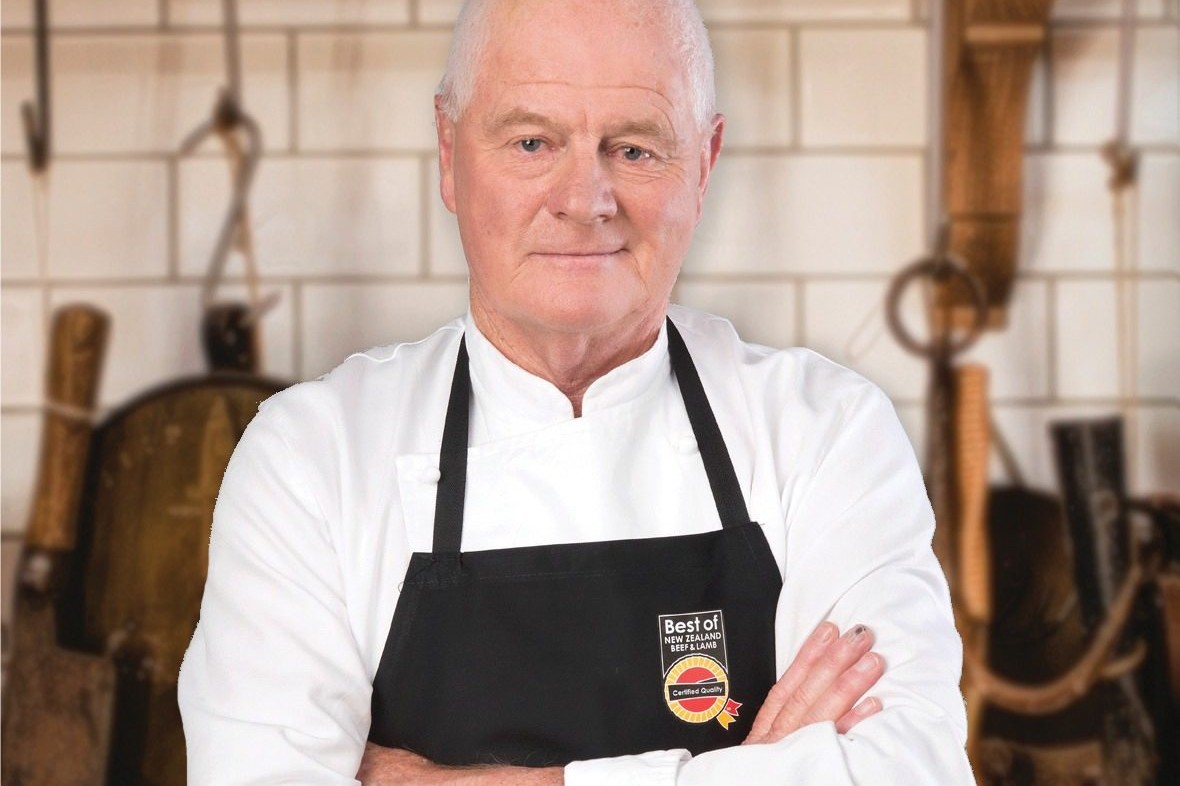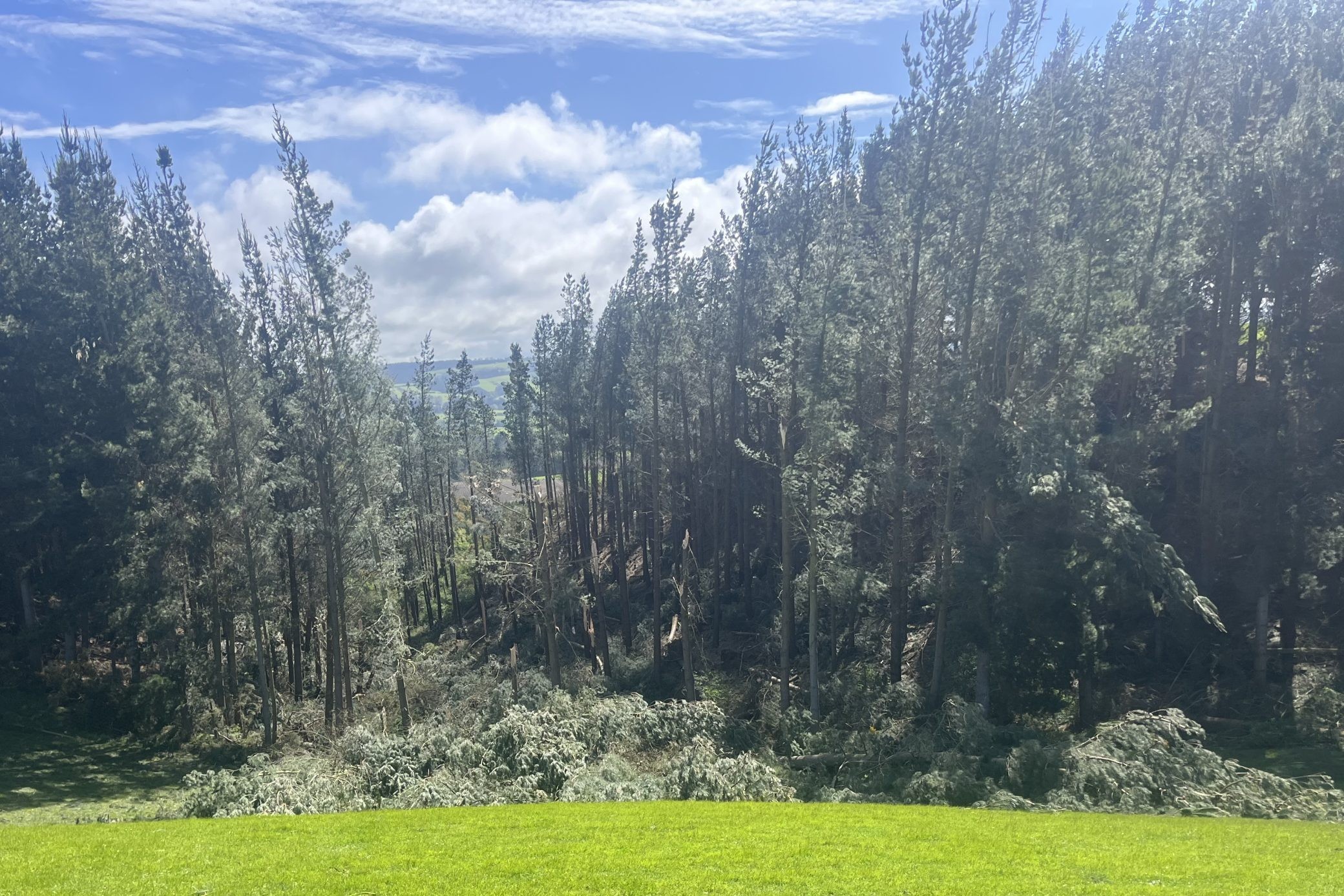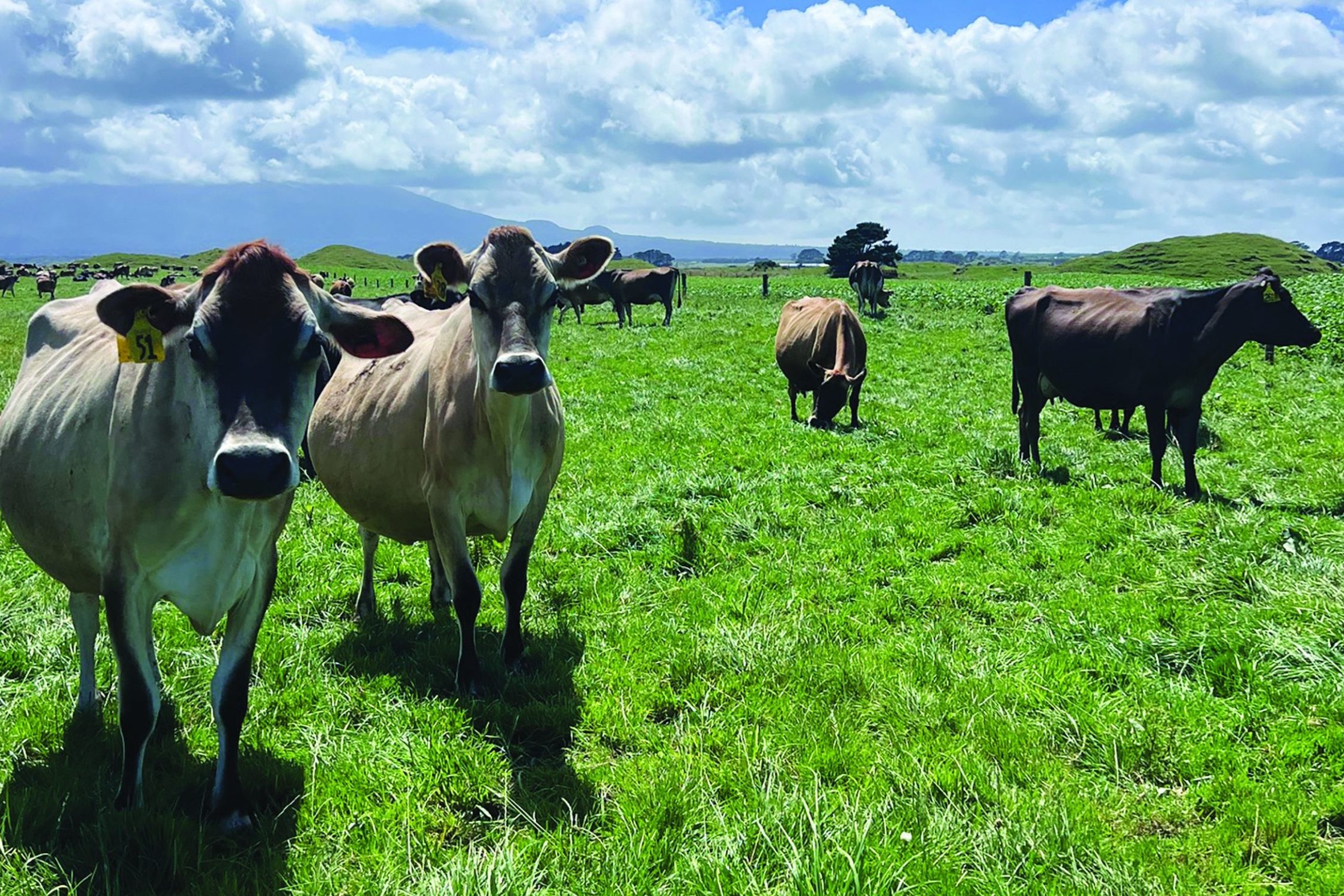Rod Slater to hang up the apron
Beef +Lamb NZ chief executive Rod Slater is stepping down after 27 years. Glenys Christian spoke with him to find out more about his time at the helm promoting beef and lamb.

Beef +Lamb NZ chief executive Rod Slater is stepping down after 27 years. Glenys Christian spoke with him to find out more about his time at the helm promoting beef and lamb.
A butcher by trade, Rod teamed up with Peter Leitch, later to be known as the Mad Butcher and knighted, after a chance meeting on a flight from Auckland to Wellington to stave off union protests at plans for Saturday opening of butchers’ shops. Flying back together they hatched the idea of a chain of butchery shops throughout Auckland, with the deal sealed on just a handshake.
“Peter was a marketing genius,” Rod said.
“He was the first to talk about his own business on the radio which people didn’t do.”
Despite there being a supermarket right next door to their first shop at Hauraki Corner on the North Shore, interest was so great that traffic pointsmen were posted all the way from the Harbour Bridge to direct shoppers.
“And when we opened our second shop in Mt Roskill there was a queue 500 metres up the road of people wanting to get in.”
Higher volumes of sales with lower margins were the order of the day with 90 percent of meat pre-packaged but customers also had the choice of personal service.
In the early 1980s they protested about the compulsory levy butchers then paid to the Meat Board, based on frustration at the lack of promotion of beef and lamb on the local market. That led to formation of the bureau with Rod on the board.
In the 1990s they decided to go their own ways and Rod found himself temporarily retired after an unsuccessful foray into selling second hand vehicles imported from Japan. So he was happy to take up then Beef + Lamb New Zealand bureau chairman, Denis Denton’s offer of a job, thinking this would be a very temporary move.
“But consumers didn’t think it was over,” he said.
Meat Board director, Bruce Jans, was a convert, spearheading a campaign for meat companies to match the board’s contribution to the bureau, dollar for dollar. So in 1994 the bureau was up and running again after nine months of “going round the traps” by Rod.
The immediate focus was the Quality Mark guarantee but the one other bureau employee, marketer, Debbie Armitage, came up with the Ambassador Chef Programme, still running today. One of Rod’s first moves was to pick up the phone and talk to the bureau’s Australian counterpart, now the Meat and Livestock Association (MLA) who suggested he pay them a call.
“I didn’t need a second invite,” he said.
“And they showed me their iron campaign.”
Marketing the meat
The bureau was able to buy television advertising and point of sale material at a fraction of the cost it would have cost to develop it from scratch, and that led to a highly successful 10-year relationship.
“Farmers, butchers and processors are all marketing experts,” Rod said.
“But they loved it. Health questioning was growing and it was an opportunity to highlight the importance of iron in the diet, particularly with women. We were presenting a solution to a problem and B+LNZ almost owns that territory now. And the more you can present with humour the better cut through you get.”
That was very much part of a later TV ad featuring Hare Krishna butchers dancing down the street, singing the praises of their red meat wares.
Peter Leitch was again involved in the Iron Maidens campaign conception. The bureau had been giving free meat to athletes such as cyclist Sarah Ulmer, but just before the 2004 Olympic Games in Athens he phoned Rod very excited about rowers Caroline and Georgina Evers-Swindell, who were not being sponsored.
“They all won gold medals,” Rod said.
“No one had identified Olympic athletes’ marketing potential at that stage. We were the first.”
So a deal was done with their management, giving huge cut through to young women concerned about healthy eating. This followed on to TV campaigns such as Iron Works, where Rod played the role of a heavy metal band member and events such as The Steak Of Origin and Glammies.
However, beef and lamb consumption has been declining over the last 25 years, firstly with chicken losing its status as a luxury item to be eaten only at Christmas, then with the more recent rise of plant-based products.
“There’s room for everyone,” Rod reasons.
“But there is an agenda globally where people would like to see no animals farmed in the future. They’re vocal and they’re well organised. We have to fight back with the facts.”
A recent impediment to that has been the rise of social media and fake news.
“Most consumers only read the headlines,” he said.
“So a farmer misbehaving in the United States Midwest is our problem. It’s global now and that’s a real challenge. We have to be so much more agile.”
Social norms are changing as well. It used to be accepted that some 13-year-old girls might stop eating meat for a few years, but would start again when they had children and were responsible for someone else’s health. But a recent survey on Auckland North Shore showed half of teenage girls didn’t eat meat, possibly as the result of peer pressure.
“We have to understand the audience and that it’s not a case of one size fits all,” he said.
That means targeted messages, respecting that different people have different views.
“But one thing that isn’t changing is taste. That’s the most pleasurable part of eating beef and lamb along with the sense of occasion.”
He’s buoyed by the fact that when dining out recently he’s been told by three chefs that beef is the most popular dish on their menu.
“We’ve got to keep those good messages out there,” he said.
“They’re all bullets in our gun.”
The unforeseen can always intervene and B+LNZ was literally hours away from launching a new advertising campaign before the first Covid-19 lockdown. It was based on a series of true or false questions about beef and lamb but was pulled at the last minute. “It’s still in the bank,” he said.
Butchers had a hard time during lockdown, but he hears anecdotally that for many their trade is what it was previously and margins are reasonable. Covid-19 has reaffirmed to consumers what’s really important, he believes.
His style has always been to get out of the office and mix widely with industry participants, be they farmers or meatworkers. He recalls with satisfaction the surprised expression on a worker’s face at Affco’s Wanganui plant when, dressed in a suit for a tour of operations, he asked if he could have a go at linking the sausages they were making.
So, will he miss his involvement in the industry?
“One hundred percent I’ll miss the people and that scares me,” he said.
With 15 staff in the bureau’s North Shore office, three of them nutritionists, and most young women, he said they challenge him every day.
He’ll stay on until a new chief executive is found and continue with his positions as a board member of Diabetes New Zealand and chairman of the NZL Sailing Foundation.
“But my wife won’t find me easy to live with.”




